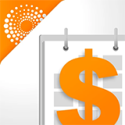360° Payroll SolutionsProfessional guidance in resolving any concerns related to Payroll and HR
Web Clock Login
Employees
Web clock for employees to clock in/out and log in to their Employee Self Service timekeeping portal.
360° Payroll Accounting Login
Employees and Employers
Login for employees to view pay stubs and update W-4 information. This portal also allows employers to update employee information, submit payroll, and view pay stubs, payroll reports, and tax forms.
Timekeeping Login
Managers & Employers
Log in here to approve and edit time, and view and approve PTO requests.
360° Payroll Solutions Seeks To Meet Every Back Office Need
360° Payroll Solutions is committed to helping small and medium-sized businesses grow. Back-office management, like payroll, HR, benefits, retirement-contribution planning, and more, can be complicated. They can also be expensive if filed incorrectly.
Our team of professionals deals exclusively with these issues. That means even if your company isn’t large enough to warrant a full-time HR person, you can still reap the benefits of having a payroll, HR, and accounting firm at your back–at a cost your small business can afford. And, we’re easily accessible should questions or concerns arise.
We partner with top vendors to provide extensive value to our clients, and we are able to work with clients in all 50 states. Why waste time and money when all your needs can be met at once?

IRS Withholding Calculator
If you are an employee, the Withholding Calculator can help you determine whether you need to give your employer a new Form W-4, the Employee’s Withholding Allowance Certificate, to avoid having too much or too little federal income tax withheld from your pay. You can use your results from the calculator to help fill out the form.
360° Payroll Account Login
Login for employees to view pay stubs and update W-4 information. Employers may log in here to update employee information, submit payroll, and view pay stubs, payroll reports, and tax forms.
Paycheck Calculator
Calculate your net pay or “take home pay” by entering your per-period or annual salary along with the pertinent federal, state and local W-4 information into this free Paycheck Calculator.

Why waste time and money having to deal with multiple vendors when all your needs can be met at once?
360º Payroll Solutions seeks to meet every back-office need by partnering with top vendors who provide an expert knowledge base to serve our clients. We service small and medium-sized businesses in all 50 states.
Meet Your Team of Experts
Our team is available to help you every step of the way. From HR to payroll to tax withholding, our friendly professionals are ready to take away the burden of navigating back-office issues.
View What Our Clients Have To Say…
Barbara J. - Business Owner
Starting a small business is hard, keeping up with the state and federal laws is even harder when you are trying to keep a small business off the ground and operating. I found myself needing to outsource a few things to allow me to focus on growth of my business and that is when I found this payroll service. They put my mind at ease, showed me how to log in, and enter the time/wages for my employees and all I have to do is click a few buttons. Payments to my employees are made as well as they take care of the year end statements and address any questions I have throughout the year. It has truly been a lifesaver taking this off my plate to focus on growing my small business.
Kim S. Owner-Chief Graphic Designer|The Blue FOCUS
What a great group of people. The service is always good and everything is done on time and accurately!! I just can’t say enough good things about these guys!!
Elliott C. – President Arkansas Insurance Advisors
360 Payroll Solutions has been so easy to work with. I previously managed payroll on my own and it has been well worth the small fee they charge so that I can focus on what I do best. I highly recommend that you consider 360 Payroll Solutions for your future payroll needs.
Have a question for the team?
The decision to outsource your back-office processes is a serious one. To help you make the right choice for your business, we offer free consultations to walk you through your needs, the scope of your goals, and your budget.



